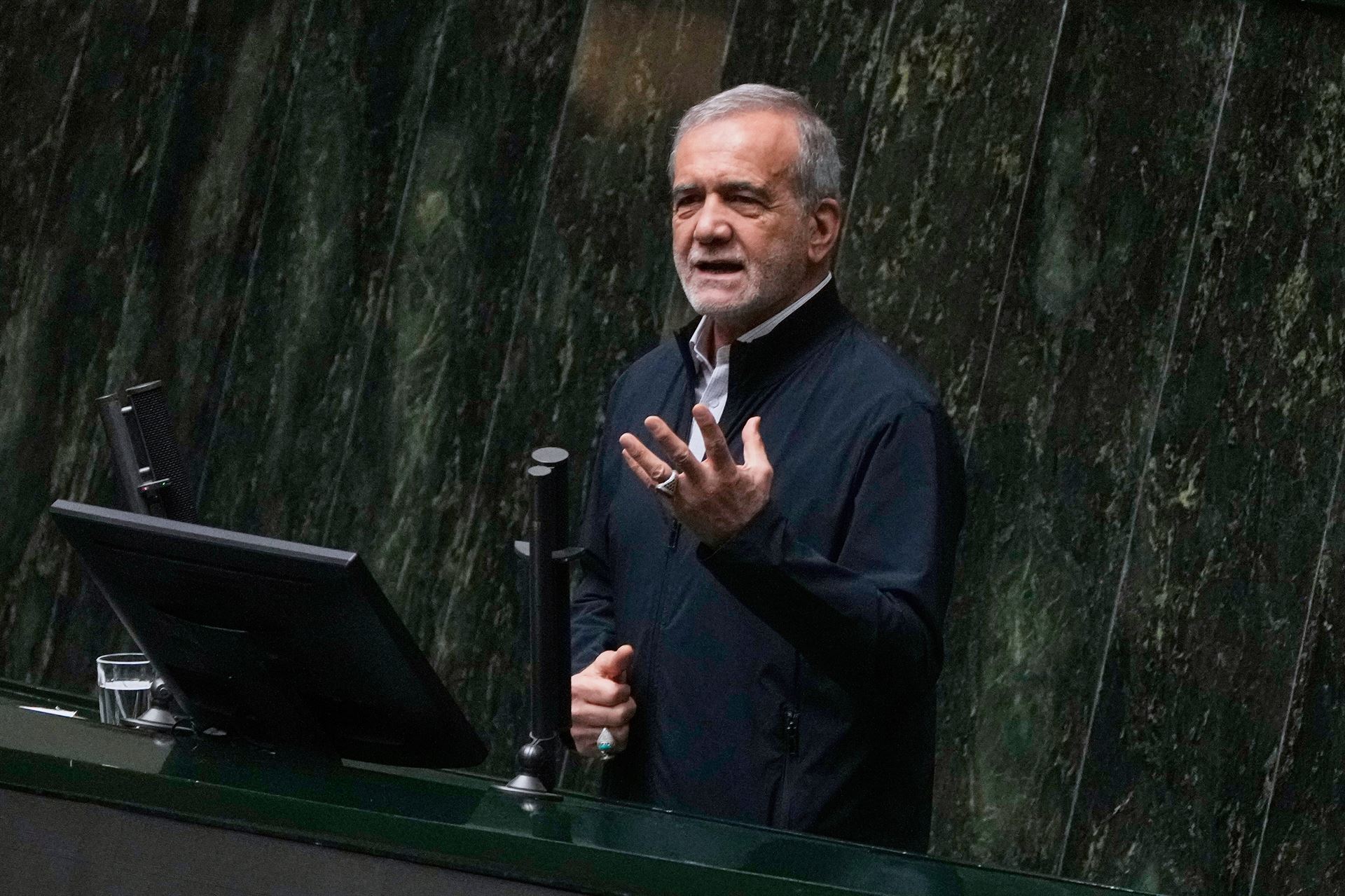
TEHRAN - Iran's President Masoud Pezeshkian has said the country's continuation of cooperation with the International Atomic Energy Agency (IAEA) is contingent upon the UN nuclear watchdog correcting its "double-standard behaviors" towards Tehran's nuclear program.
Pezeshkian made the remarks in a phone call with President of the European Council Antonio Costa on Wednesday night, in which the two sides discussed the latest international developments, especially the recent conflict with Israel and the future of relations between Tehran and the European Union (EU), according to a statement published on the website his office on Thursday.
Pointing to a law that was passed by Iran's parliament and Constitutional Council late last month and calls for suspending the country's cooperation with the IAEA, Pezeshkian said the law was adopted in response to IAEA Director General Rafael Grossi's "biased and unprofessional" behavior.
ALSO READ: Iran vows to press ahead with uranium enrichment despite IAEA censure
The Iranian president accused the IAEA of failing "to observe the principle of impartiality" in presenting reports about Iran's nuclear program, and "turning a blind eye" to the attack on Iran's nuclear facilities.
He reaffirmed Iran's commitment to dialogue, diplomacy, mutual respect, and international law frameworks, stressing that, however, repeating any "aggression" against the country would receive a "more decisive and regret-inducing response."
Pezeshkian voiced his country's readiness to expand relations and resolve the existing bilateral issues with the EU through "constructive" dialogue and based on mutual respect.
READ MORE: Iran rejects IAEA report as ‘politically motivated’
Costa, for his part, said the EU was willing to find diplomatic solutions to existing issues and promote cooperation with Iran, adding he agreed with the Iranian president on the fact that international organizations should avoid double standards.
He noted that the EU had deep respect for the Iranian nation's history, civilization, and culture and was fully prepared for dialogue and cooperation.
On July 1, Pezeshkian issued an order to enact the law on suspending cooperation with the IAEA. The law was adopted due to "the violation of Iran's national sovereignty by the United States and Israel, and their attacks on the country's territorial integrity as well as peaceful nuclear facilities," according to Iran's Constitutional Council.
READ MORE: Iran expects IAEA to maintain neutrality in Teheran-Washington talks
On June 13, Israel launched major airstrikes on several areas in Iran, including nuclear and military sites, killing senior commanders, nuclear scientists, and civilians. Iran responded with multiple waves of missile and drone attacks on Israel.
On June 22, US forces bombed three Iranian nuclear facilities. In retaliation, Iran struck the US Al Udeid Air Base in Qatar.
After 12 days of fighting, a ceasefire between Iran and Israel was reached on June 24.


